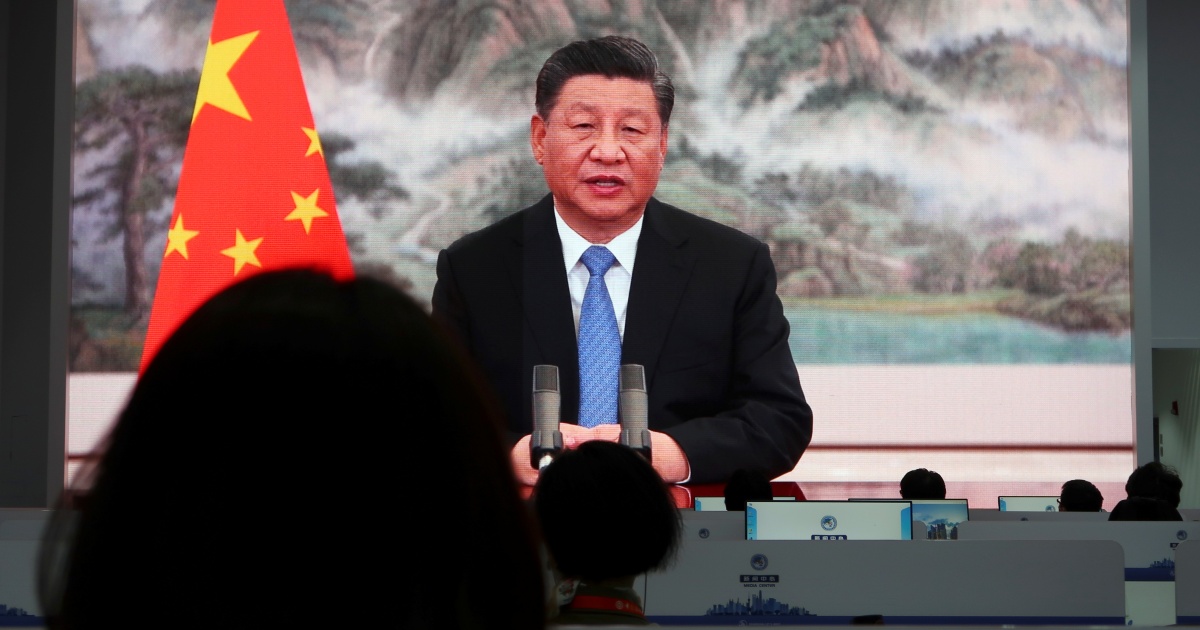SILENT ANGER OVER CHINA ORDER FOR PRODUCING MORE CHILDREN
An American media story has gone viral across the world, showcasing the people’s anger and frustration over the Chinese government’s decision to counter its fast-ageing population figures by “encouraging” couples to marry early and have at least three children each.
The CNN told the story, captured on video, of a young Chinese man and his family which had refused to leave their home and go into government Covid quarantine during the strict lockdown in Shanghai.
The officer, determined to eject them from their home, threatens the family saying if they do not obey the government’s orders they will be punished and the punishment “will affect three generations in your family”. The man is heard replying in an adamant tone: “We are the last generation, thank you.”
The man was defiantly telling the officer that he does not propose to have any children of his own and so, the question of the punishment affecting them does not arise. No video in recent times went to viral on Chinese mass media platforms. It perhaps resonated the silent opinion of most Chinese today.
CNN quotes a mass media platform user’s response to the video: “I laughed at first but in the end, I felt a sense of great sadness. He is resisting by giving up his reproductive rights.”
The Chinese government is beginning to realise that most of the citizens are frustrated with the growing official pressure on them to produce more children.
Here are the figures that worry the government. In the six-year period between 2013 and 2019, the number of Chinese marriages has nose-dived by 41 per cent, from 23.8 million to 13.9 million. The data was released by China’s National Bureau of Statistics. Last year, only 7.6 million couples registered for marriage. This is the lowest figure in the last 36 years. As a result, the birth rate of China has dropped to 7.5 births per 1000 people. This is a record since the founding of communist China. Nine provinces and regions have registered negative population growth.
Most would-be parents say they just cannot guarantee enough financial security to look after the well-being of their children. Their own lives are so much under pressure from various official quarters, ranging from education, education loans and their repayment, lack of good jobs, lack of pay, rising prices, and the growing costs of children’s education.
The stiff opposition to bearing children comes more from educated and employed women who no longer want to be victims of the inherent patriarchy in the Chinese system. Most urban women today marry late and are not necessarily in favour of having children early. Many do not want children.
Some say they should have the right to choose pregnancy and that the State cannot dictate to them when to get pregnant and how many times. A few women say they want to enjoy a responsibility-free life before settling down. For many, however, money is the issue.
Bringing up a single child is tough in present-day China. Education is expensive. There is much pressure on the children to perform well in academics if they want to secure their seats in universities. So, nearly all parents engage private tutors for the students. Recently, the Xi Jinping government banned private tutors. That has forced parents to look for tutors online in the black market, paying much higher fees. Most young parents feel even if they agree to have children, they will not have more than one because it is impossible to raise enough money for three children.
Another critical issue that makes the Chinese oppose having more children is they remember the pain and torture they or their parents endured as the government strictly enforced the one-child policy. Forced abortions were the order of the day, the State determined when women could get pregnant, kept married couples under constant surveillance, even fined and jailed those who went in for a second child. Millions of abortions were carried out at that time. So, the government is not trusted by the people.
Now, when the government wants more children, the people are unwilling. A worried government is now trying to generate trust by having a two-way communication about the need for more children. The government has introduced several contests in this regard, but the response is not enthusiastic.
The Chinese also point out that the government has not come out with any policy changes to make it easier for couples to have more children. For instance, the biggest worry of employed women is that they may get fired from their jobs if employers feel they will have to pay for three maternity leaves.
Realising the enormity of the problem, the Chinese government decided to award 30 additional days of maternity leave and 15 days of parental leave for the father for couples who have a third child. But the people want legal sanction. They say that otherwise, private companies will discriminate against couples with more children or pregnant mothers and prefer giving jobs to the child-less.
The Covid pandemic with its forced quarantines and unending lockdowns has only added to the mental stress of Chinese couples. The frustration of being forced to stay locked inside homes, food shortages, lack of income, health problems, etc., have led to disillusionment. More and more Chinese are taking to the social media these days to vent their anger and that has made the official censors to work over-time to clean the controversial posts from the media platforms.
Time is running out for the government because if people do not respond to its order to have more children, the country could become another South Korea, which already faces the hazard of a negative population growth.











